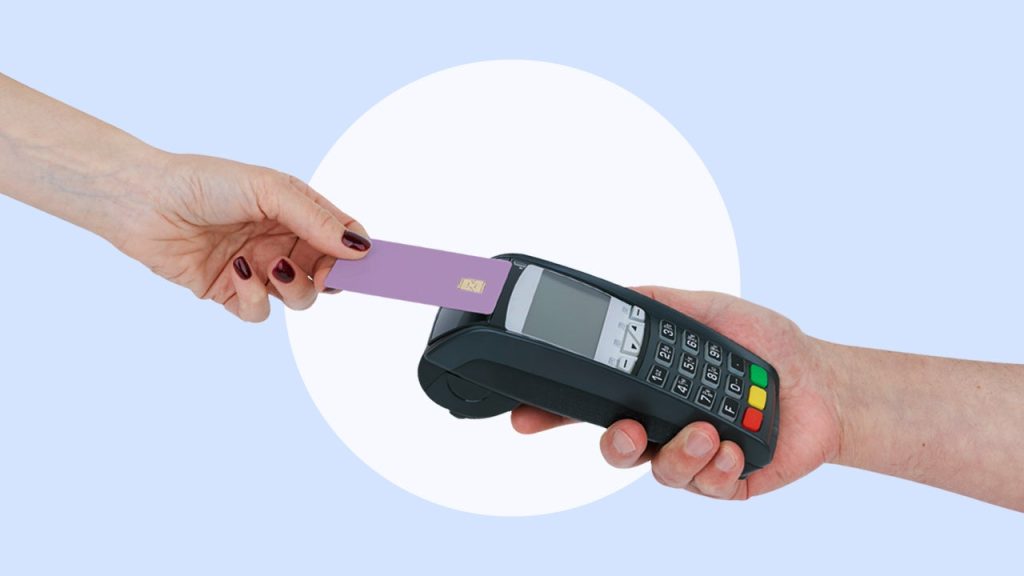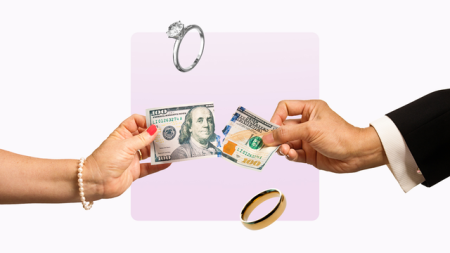Image by GettyImages; Illustration by Bankrate
Key takeaways
- Credit card companies generate most of their income through interest charges, cardholder fees and transaction fees paid by businesses that accept credit cards.
- Even if you don’t pay fees or interest, using your credit card generates income for your issuer thanks to interchange (or swipe) fees.
- You can minimize fees and interest payments with responsible card use, including timely payments, avoiding cash advances and understanding your card’s terms and conditions.
You’re probably familiar with cardholder fees related to credit cards, but that’s just one main source of revenue for credit card companies. They also generate income from two other main sources: credit card interest and transaction processing fees.
Credit card companies use various strategies to generate revenue. Whether you carry a balance or not, your credit card activity contributes to the issuer’s income. Understanding how credit card companies make money can empower you to minimize fees and interest payments through responsible card use.
What is the role of credit card issuers and networks?
Credit card issuers — like Chase and Citibank — are lenders. When you buy something with a credit card, you’re borrowing money from a lender with the expectation that you’ll repay it, sometimes with interest. At the point of sale, the card issuer pays the merchant, and then you’re obligated to pay the issuer back. If you don’t pay back your charges, the merchant still gets paid, and the card issuer is responsible.
The other major players are credit card networks. They manage the process between merchants and card issuers. The four major credit card networks are Visa, Mastercard, American Express and Discover, with American Express and Discover serving as both networks and issuers.
There are multiple details that unfold when you swipe your card, but put simply: money must transfer from the issuer to the merchant’s bank, a process the network manages. The network checks with the issuer to ensure the funds are available and the card is active before approving the transaction. All of this happens in a matter of seconds at the point of sale and, yes, fees are involved in the process.
How do credit card companies generate income?
Credit card companies make the bulk of their money from interest, cardholder fees and transaction fees paid by businesses that accept credit cards.
How can cardholders minimize fees and interest payments?
As a cardholder, there are several steps you can take to minimize the fees and interest you pay. It all starts with understanding how your credit card works and then making smart decisions.
What are some steps you can take to avoid paying fees?
First, be aware of the common credit card fees you may encounter so you can minimize charges or avoid them altogether. Beyond that:
- Sign up for monthly bill reminders via text or email from your card issuer. This will help you avoid late payment fees.
- Consider setting up autopay for at least the minimum amount due each month. This automatic payment can prevent you from missing a payment and incurring a late fee.
- If your credit card charges an annual fee, consider whether the benefits you receive from the card outweigh this cost. If they don’t, it might be worth shopping around for a card that doesn’t charge an annual fee.
- Avoid using your credit card for cash advances. Most credit card companies charge a flat rate or a percentage of the transaction.
- If you travel abroad or shop in foreign currency, make sure you use a card that doesn’t charge foreign transaction fees.
The key lies in understanding the fees that your card charges. By knowing the fees, you can take steps to avoid some of them. If some charges are unavoidable — such as annual fees — you can make an informed decision about whether the benefits of the card justify that fee.
What should you do if you are charged a fee?
If you’re charged an avoidable fee, such as a late payment charge, don’t hesitate to contact your credit card issuer. They may be willing to waive the fee, especially if you’re a good customer who normally pays your bills on time. Mistakes happen and it never hurts to ask.
Otherwise, take steps to ensure you don’t incur that fee again. That could mean setting up due date reminders or auto-payments or rethinking your budget and spending less to avoid interest charges.
The bottom line
As a cardholder, you help credit card issuers earn money even if you’re responsible with your cards and never pay interest or avoidable fees. The annual fee you may pay, along with the interchange fees generated each time you use your card, contributes to the credit card issuer’s revenue.
Using a credit card comes with costs for the privilege and convenience. Understanding these expenses and using your card responsibly is the key to earning valuable rewards while avoiding unnecessary fees.
Why we ask for feedback
Your feedback helps us improve our content and services. It takes less than a minute to
complete.
Your responses are anonymous and will only be used for improving our website.
Help us improve our content
Read the full article here









